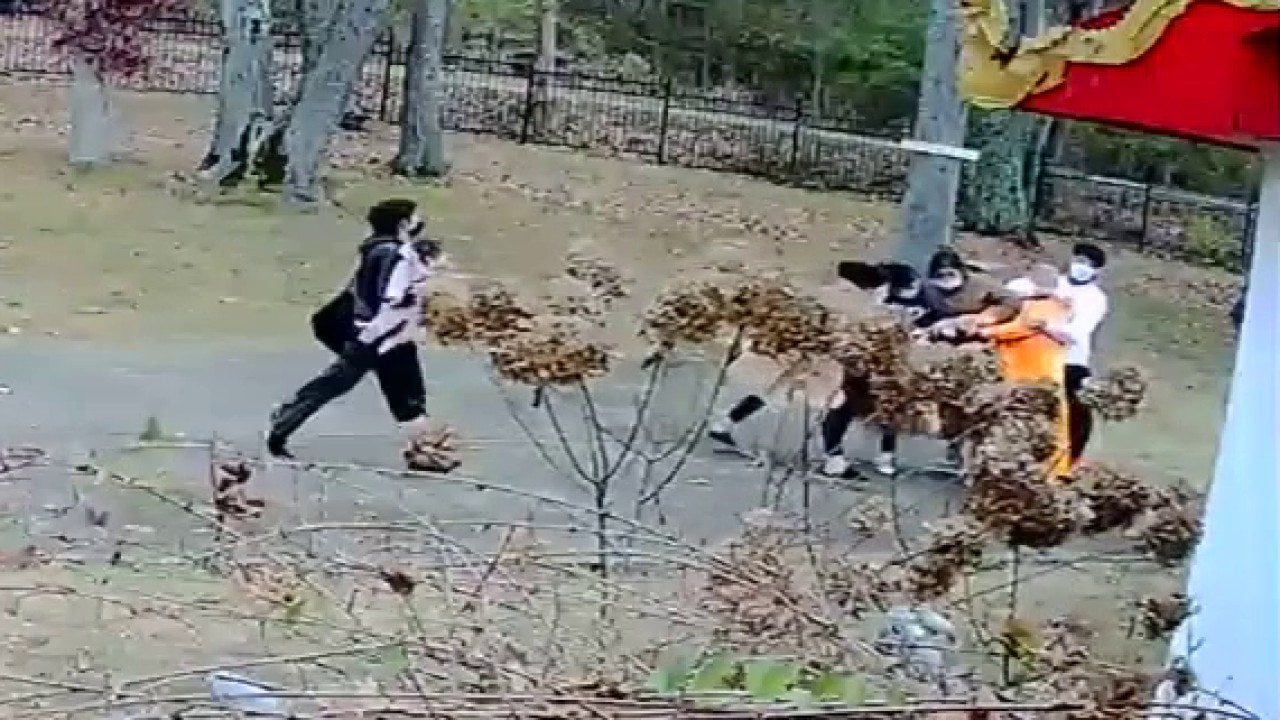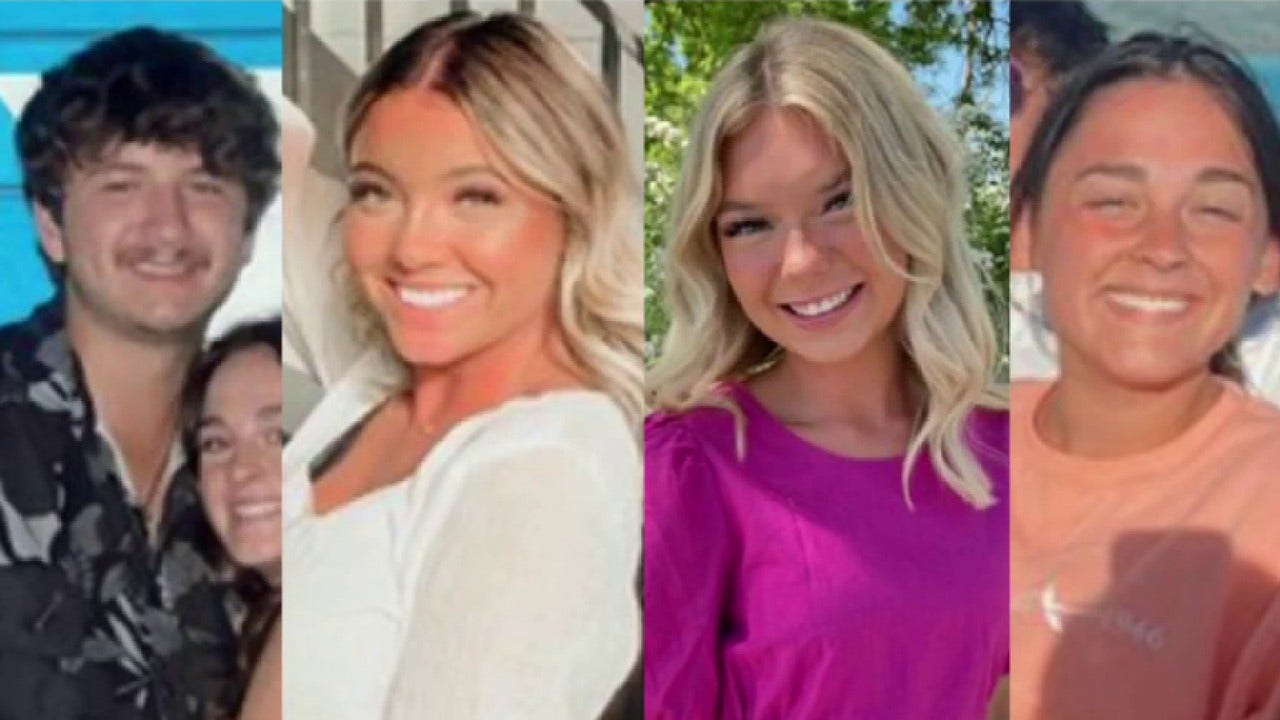Among the 124,000 conflicts evacuees whom the U.S. government flew out of Afghanistan in August and brought to military bases across the U.S. before being resettled, many are struggling under a broken immigration” target=”_blank”>immigration< who stepped in to help when the traditional resettlement agencies funded with U.S. taxpayer money were having trouble keeping up with the mounting demands.
“The agencies that handle those programs are overwhelmed and unable to support those needs. And so many Afghans, unfortunately, are falling through the cracks,” Sean Kildane of Save Our Allies told Fox News.
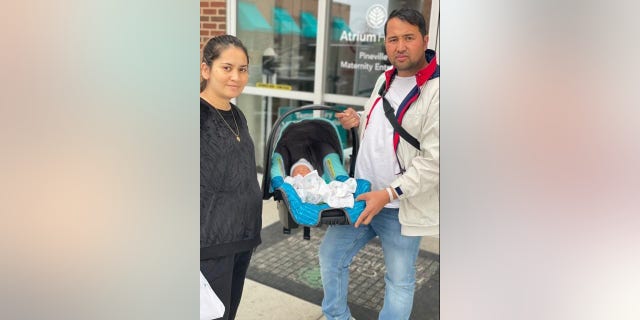
Abdullah and his wife in front of Greenville, S.C. hospital with newborn. Courtesy of Abdullah Rahmatzada
Unlike most of the 124,000 Afghans airlifted out of Kabul, Abdullah has received a Social Security number.
“Today I started my work. I started my work at some supermarket. Its name is Harris Teeter,” Abdullah told Fox News.
He’s one of the lucky ones. Most have not received Social Security numbers or Employment Authorization Documents, identification cards issued by immigration and Immigration Services (USCIS).
FORMER US SOLDIER RETURNS TO AFGHANISTAN, RESCUES CHRISTIANS FROM TALIBAN
“Many of these Afghans were issued Social Security cards that list them as ineligible for employment,” explained Kildane of Save Our Allies.
In some cases, their EAD cards were sent to military bases after the families were resettled in cities across America.
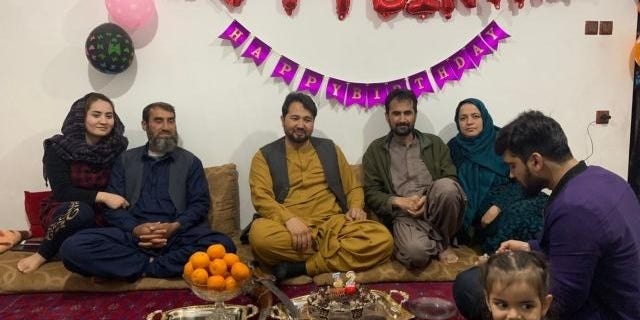
Afghan family celebrates a birthday. Courtesy of Abdullah Rahmatzada
“They’ve been sitting in hotel rooms or AirBNBs for months on end just simply waiting for that card to come in that says they’re allowed to work,” Kildane explained.
Save Our Allies, a group formed by U.S. veterans last August during the evacuation, is just one of many veterans groups that are trying to help the evacuees, warning unless Congress acts to give these humanitarian parolees special status, these Afghans will fail.
“So if you’re a humanitarian parolee, the only benefits that you’re actually receiving from the government right now is a loan, not a grant, a loan to get you to the first place that you’re going to live,” Nick Palmisciano, a former Army Ranger and founder of Save Our Allies, told Fox.
“If you’re leaving Camp McCoy, for example, and you’re moving to Virginia, they’re going to loan you the money for those flights, and then you’re going to get three months of essential housing. And that’s it. You’re on your own. That would be challenging for an American, never mind somebody that even if they speak English, they’re not fluent.”
US EMBASSY IN PAKISTAN REPEATEDLY HANGS UP ON VETERAN PLEADING FOR HELP
Afghan mothers feed their babies sugar water because they don’t have money for food or formula, using buckets for baths in apartments where there is no running water and having to walk home from the hospital after giving birth because they can’t afford a ride. These are just some of the problems being faced by many of the 124,000 Afghan evacuees who were brought to the U.S., according to veterans working for Save Our Allies.
Most of the 124,000 Afghans don’t have proper documents because they were allowed into the U.S. not as refugees but given a special humanitarian parolee status. As a result, many are still waiting for Social Security numbers making it impossible to work and support their families. Without a Social Security number, they can’t get drivers’ licenses from the DMV. Without a driver’s license, they cannot take jobs as drivers, a good entry-level job here in the U.S., or Medicaid or Food Stamps.
On Dec. 6 Abdullah’s wife went into labor, and he called 911.
His baby was born with a club foot, and the government-funded resettlement agency could not help get him an appointment in Charlotte for months.
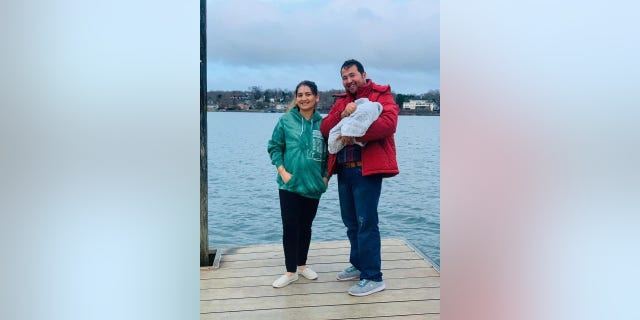
Abdullah and his wife hold their newborn. Courtesy of Abdullah Rahmatzada
The U.S. government only commits to providing support for the evacuees for 90 days. It provides $1,225 per evacuee to help with those first 90 days. They also loan them the money to fly to their final destination. That money needs to be paid back.
Palmisciano, a former Army Ranger, described the case of an Afghan combat translator named Johnny, whom Fox News has followed on his journey to North Carolina. He was evacuated with his wife and three children and now lives in a house donated by a U.S. military veteran family, but he wants to work.
“He has had his work visa lost in the mail twice. If we did not provide financial support, if we weren’t looking out for him, he literally would be on the street with no means of feeding his family,” Palmisciano said. “Do we want them to become successful, productive members of American society? Or do we want them on the street? Do we want them to feel like failures?
The defense” target=”_blank”>Defense Department<
“We just need to support them and treat them like humans, not like cattle in a bureaucracy or just a case number,” Save Our Allies’ Kildane said.
 Iktodaypk Latest international news, sport and comment
Iktodaypk Latest international news, sport and comment

